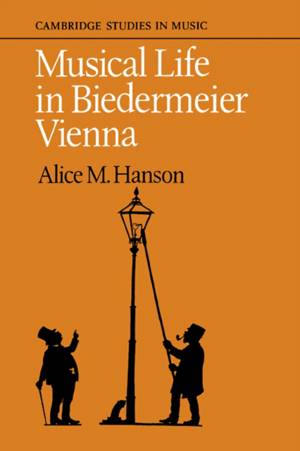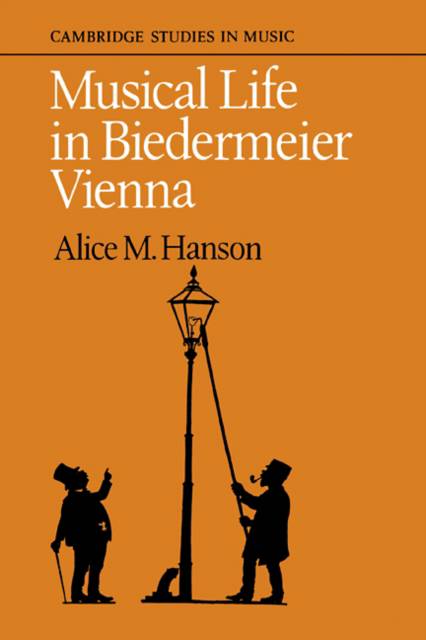
Bedankt voor het vertrouwen het afgelopen jaar! Om jou te bedanken bieden we GRATIS verzending (in België) aan op alles gedurende de hele maand januari.
- Afhalen na 1 uur in een winkel met voorraad
- In januari gratis thuislevering in België
- Ruim aanbod met 7 miljoen producten
Bedankt voor het vertrouwen het afgelopen jaar! Om jou te bedanken bieden we GRATIS verzending (in België) aan op alles gedurende de hele maand januari.
- Afhalen na 1 uur in een winkel met voorraad
- In januari gratis thuislevering in België
- Ruim aanbod met 7 miljoen producten
Zoeken
Omschrijving
This book examines the impact of the daily life, political climate and artistic institutions of Vienna on its musicians and musical tastes between 1815 and 1830. Emphasis is given to Beethoven, Schubert, Paganini and Johann Strauss where their careers reflect typically Viennese musical life and when Viennese conventions may explain important turns in their lives. Attention is also paid to the incomes, service contracts and welfare of lesser-known musicians of the same period. An entire chapter is devoted to the regulation of music by the Austrian government, secret police and censors, since this period coincides with the height of Metternich's political power. Although the study is mainly intended for music historians and listeners, the book should also interest the Austrian, literary, theatre and political historian. Furthermore, the research presented here suggests that many of the intriguing questions and social issues in Vienna at the end of the nineteenth century, currently widely discussed by Schorske, Toulim and McGrath, are already present in Vienna in 1815.
Specificaties
Betrokkenen
- Auteur(s):
- Uitgeverij:
Inhoud
- Aantal bladzijden:
- 256
- Taal:
- Engels
- Reeks:
Eigenschappen
- Productcode (EAN):
- 9780521104845
- Verschijningsdatum:
- 19/03/2009
- Uitvoering:
- Paperback
- Formaat:
- Trade paperback (VS)
- Afmetingen:
- 152 mm x 229 mm
- Gewicht:
- 381 g

Alleen bij Standaard Boekhandel
+ 94 punten op je klantenkaart van Standaard Boekhandel
Beoordelingen
We publiceren alleen reviews die voldoen aan de voorwaarden voor reviews. Bekijk onze voorwaarden voor reviews.









